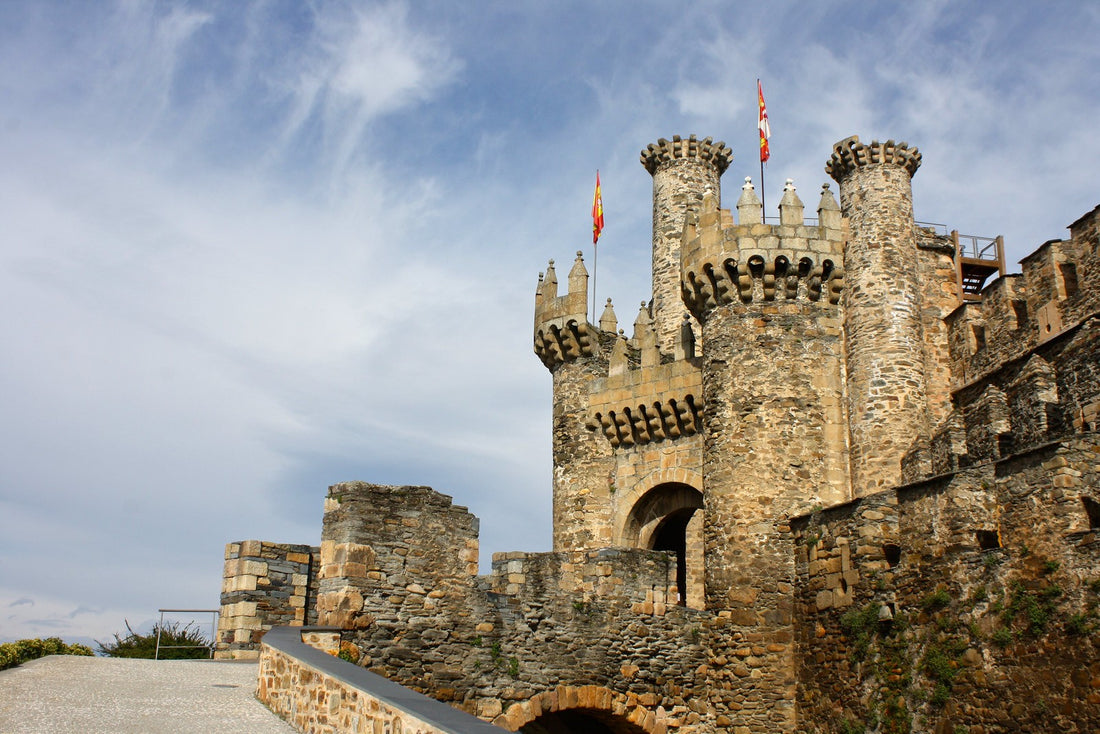
The Catholic Roots of Castile Soap
Share
The Castile Soap Odyssey: From Crusades to Controversies
In the heart of medieval history, amidst the fervor of the Crusades, European warriors embarked on a sacred journey to the Holy Land, traversing the Silk Road. Within this tapestry of intercultural exchanges, the tale of Castile soap found its roots.
Crusaders and Cultural Exchange:
Venturing through the ancient Silk Road, these warriors encountered the Levantine art of soap-making with olive oil and Laurel oil, known as "Aleppo Soap." Unbeknownst to them, they carried back not only tales of battles but also the secrets of a transformative cleansing agent. Castile soap emerged from this cultural exchange, a new product of Christendom.
Origins in the Olive Groves of Castile:
Back in the sun-drenched orchards of Castile, Spain, soap artisans embraced this newfound knowledge. Diverging from tradition, they harnessed the liquid gold of olive oil, birthing Castile soap. Celebrated for its purity and efficacy, it became a symbol of innovation rooted in the fertile soils of the Castile region.
Transformation and Catholic Embrace:
The returning Crusaders became inadvertent ambassadors, disseminating the Levantine technique of soap-making with olive oil across Europe. Castile soap, with its gentle efficacy, found a sacred place within the cleansing rituals of European households and monastic institutions.
Controversies and "Popish Soap":
Yet, as the popularity of Castile soap spread, controversy brewed in 17th century Protestant England. King Charles II, in a move to stir anti-Catholic sentiments, imposed a tax on castile soap, labeling it "Popish Soap." This divisive nomenclature fueled a heated debate, casting a shadow over the soap's history. In Protestant England, Castile soap began to face resistance. Motivated by nationalistic and economic factors, English soap manufacturers launched a campaign against Castile soap, advocating for tallow-based alternatives. The ensuing "Soap Wars" symbolized a cultural discord in the realm of cleanliness, reflecting broader religious tensions.
Legacy Unfolding:
Despite the controversies, Castile soap endured. Modern formulations pay homage to the original recipe, incorporating simple, natural ingredients. Regina's Castile soap has embraced its medieval roots, becoming a symbol of elegant simplicity – a testament to its enduring utility amidst the echoes of history and religious strife. As we lather with this timeless artifact, we immerse ourselves not just in a cleansing ritual but in a narrative that spans centuries, connecting us to the complex tapestry of human history and the sunlit groves of Castile.
In the heart of medieval history, amidst the fervor of the Crusades, European warriors embarked on a sacred journey to the Holy Land, traversing the Silk Road. Within this tapestry of intercultural exchanges, the tale of Castile soap found its roots.
Crusaders and Cultural Exchange:
Venturing through the ancient Silk Road, these warriors encountered the Levantine art of soap-making with olive oil and Laurel oil, known as "Aleppo Soap." Unbeknownst to them, they carried back not only tales of battles but also the secrets of a transformative cleansing agent. Castile soap emerged from this cultural exchange, a new product of Christendom.
Origins in the Olive Groves of Castile:
Back in the sun-drenched orchards of Castile, Spain, soap artisans embraced this newfound knowledge. Diverging from tradition, they harnessed the liquid gold of olive oil, birthing Castile soap. Celebrated for its purity and efficacy, it became a symbol of innovation rooted in the fertile soils of the Castile region.
Transformation and Catholic Embrace:
The returning Crusaders became inadvertent ambassadors, disseminating the Levantine technique of soap-making with olive oil across Europe. Castile soap, with its gentle efficacy, found a sacred place within the cleansing rituals of European households and monastic institutions.
Controversies and "Popish Soap":
Yet, as the popularity of Castile soap spread, controversy brewed in 17th century Protestant England. King Charles II, in a move to stir anti-Catholic sentiments, imposed a tax on castile soap, labeling it "Popish Soap." This divisive nomenclature fueled a heated debate, casting a shadow over the soap's history. In Protestant England, Castile soap began to face resistance. Motivated by nationalistic and economic factors, English soap manufacturers launched a campaign against Castile soap, advocating for tallow-based alternatives. The ensuing "Soap Wars" symbolized a cultural discord in the realm of cleanliness, reflecting broader religious tensions.
Legacy Unfolding:
Despite the controversies, Castile soap endured. Modern formulations pay homage to the original recipe, incorporating simple, natural ingredients. Regina's Castile soap has embraced its medieval roots, becoming a symbol of elegant simplicity – a testament to its enduring utility amidst the echoes of history and religious strife. As we lather with this timeless artifact, we immerse ourselves not just in a cleansing ritual but in a narrative that spans centuries, connecting us to the complex tapestry of human history and the sunlit groves of Castile.










